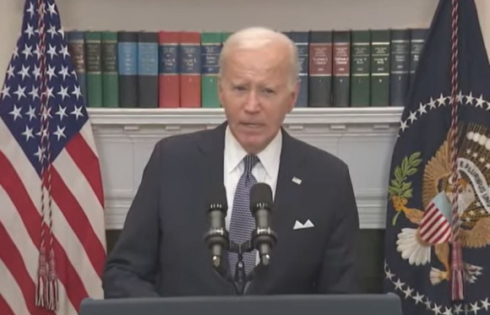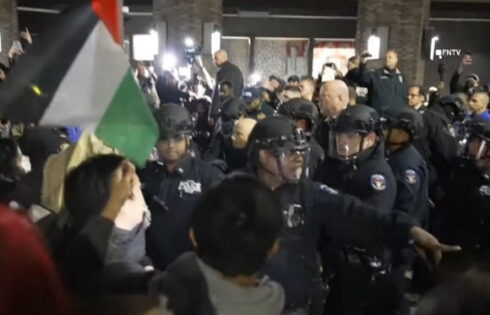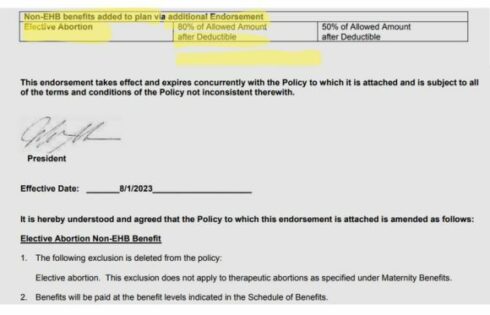
Black student ‘looked like someone who might commit sexual assault’
I’ve been wondering for a while when black student activism against perceived racism on campus is going to intersect with Title IX proceedings that seem to ensnare a disproportionate percentage of black men.
Fittingly, it might be happening at the University of Missouri right now.
A federal judge just approved a lawsuit against the beleaguered school by a black doctoral student who was suspended for two years because he made a white student feel “uncomfortable.”
Jeremy Rowles asked his dance fitness instructor at the Student Recreation Center, Annalise Breaux, out on a date in spring 2016, and she didn’t give him a firm “no,” according to the summary by U.S. District Judge Brian Wimes.
Apparently he kept asking, and she sent him a message “asking him to stop making romantic advances toward her” but encouraging him to keep taking classes at the rec center. He kept taking her class through the fall, but Breaux started avoiding him in October.
When Rowles tried to apologize for his “awkward” behavior and declare his “sincere feelings for her” in a letter, rec center leadership escalated severely, accusing Rowles of “sexually harassing and stalking” not just Breaux but three other female student employees.
Winning is evidence of guilt
Here’s the problem for Mizzou’s Title IX office: The alleged victims themselves never said Rowles threatened them.
The only one who was ever interviewed, Breaux, simply said his behavior and communications were “bizarre” and made her “uncomfortable.” Breaux’s boss “purported to submit” allegations on behalf of the others.
Here’s another problem for the Title IX office: Its director of investigations, Salama Gallimore, allegedly told Rowles in a previous Title IX investigation that he “looked like someone who might commit sexual assault.”
You can see how Rowles started to suspect that the Title IX office was going to make him pay for the crime of making a white woman feel “uncomfortable” because he eluded their clutches last time.
Rowles had previously been accused of violating “professional settings with undergraduate students,” due to an incident a year earlier where he “insinuated” he would help a female student cheat in return for “sexual favors.” He beat the sexual-harassment charge.
Winning your case at Mizzou apparently means you’re guilty if you’re ever accused again: The new investigation concluded that Rowles “failed to learn from his previous warning” with the undergraduate.
Latest university on losing side of due process decision is @mizzou. (Unsympathetic) African-American accused student; white accuser. Official involved in TIX inv'n allegedly said acc'd student "looked like someone who might commit sexual assault.” pic.twitter.com/RYOyvGo1fd
— KC Johnson (@kcjohnson9) July 16, 2018
Which charges lead to which sanctions?
You may be thinking to yourself now, “this guy sounds like a creep, even if they were unfair to him.” Perhaps, but consider how you would feel if you went through this process.
The Title IX office gave Rowles a list of charges and possible sanctions, but not which violation could result in which sanction. Based on this list, he was asked to decide between an “informal” resolution process where – yep – the top Title IX official would judge him based on the written report, and a formal hearing with witnesses before a panel of administrators.
He was given three days to decide. Breaux was not given a deadline to decide what format she preferred, but she was told she could ask an advisor for help deciding. Sounds a bit tilted, right?
Rowles fatefully chose the informal resolution, and was shocked to find himself suspended for four years and permanently banned from residence halls and the gym. Reminder: He was found not responsible in the 2015 incident, but it was counted as a strike anyway.
He got the suspension halved by playing the race card, claiming his punishment is “part of a larger pattern and practice of race and gender discrimination” in the Title IX office. He’s still never getting back into his cultural anthropology program.
No ‘fair notice’ when asking for a date might get you expelled
Judge Wimes’ ruling is a hodgepodge of good and bad news for Mizzou and Rowles.
He notes that nothing in the record suggests that Rowles’ behavior did anything more than make Breaux “uncomfortable” – certainly nothing that would revoke First Amendment protection from his speech under Mizzou’s Title IX obligations to Breaux.
In a finding that should alarm Mizzou administrators, the judge also said the individual defendants weren’t shielded by “qualified immunity” as government employees. Under the “reasonable” standard, they should have known that punishing Rowles based on Breaux’s allegations was “unreasonable.”
But he rejected Rowles’ claim that university policies let Title IX staff decide whether any given student can ask another student on a date. They are not “unconstitutionally overbroad” because they closely resemble state law on workplace sexual harassment and stalking.
However, the university still has to fight Rowles’ claim that its policies are “void for vagueness.” Wimes said he has sufficiently alleged that the Title IX office “has discretion to define material terms in the policies, without providing fair notice of the definitions applied.”
In other words: that clumsily asking someone on a date can end your academic career if it offends the Title IX office. (Rowles believes that Gallimore, the official who said he “looked” like a rapist, “played a substantial role in drafting the findings” even though another official promised that she wouldn’t be involved.)
While Wimes wasn’t convinced that Rowles was given deficient notice of charges, he allowed the “reckless investigation” claim to proceed, based on officials allegedly counting the “unsubstantiated” 2015 charge as evidence against Rowles.
Open the books on which races get which sanctions
In a finding that should bring cheers from Mizzou’s black student activists, Wimes says they can sue campus officials for disparate disciplinary practices:
Plaintiff’s allegations of anecdotal evidence suggesting systematic race discrimination in university discipline support Plaintiff’s claim of violation of substantive due process. …
[T]he Court finds that a reasonable official would have known that applying the same disciplinary standards differently to students of different races was unreasonable.
Even Rowles’ allegation that the school violated the Civil Rights Act is standing, for now.
He needs “sufficient factual matter” suggesting that the university system’s Board of Curators discriminated against him because of his race, but Rowles hasn’t identified “any comparators for whether non-African-American males are subject to gentler sanctions” for the same conduct.
Though Wimes said his request for discovery of Title IX sanctions “stretches the confines” of federal civil procedure, the judge let the claim proceed “based on the entirety of the complaint under all the circumstances of this case.”
If you thought Mizzou was suffering now with plunging enrollment and budget cuts, stemming from its racial protests of nearly three years ago, wait until the remaining student activists get a peek into its disciplinary files.
IMAGE: Antonio Guillem/Shutterstock
Like The College Fix on Facebook / Follow us on Twitter






Please join the conversation about our stories on Facebook, Twitter, Instagram, Reddit, MeWe, Rumble, Gab, Minds and Gettr.